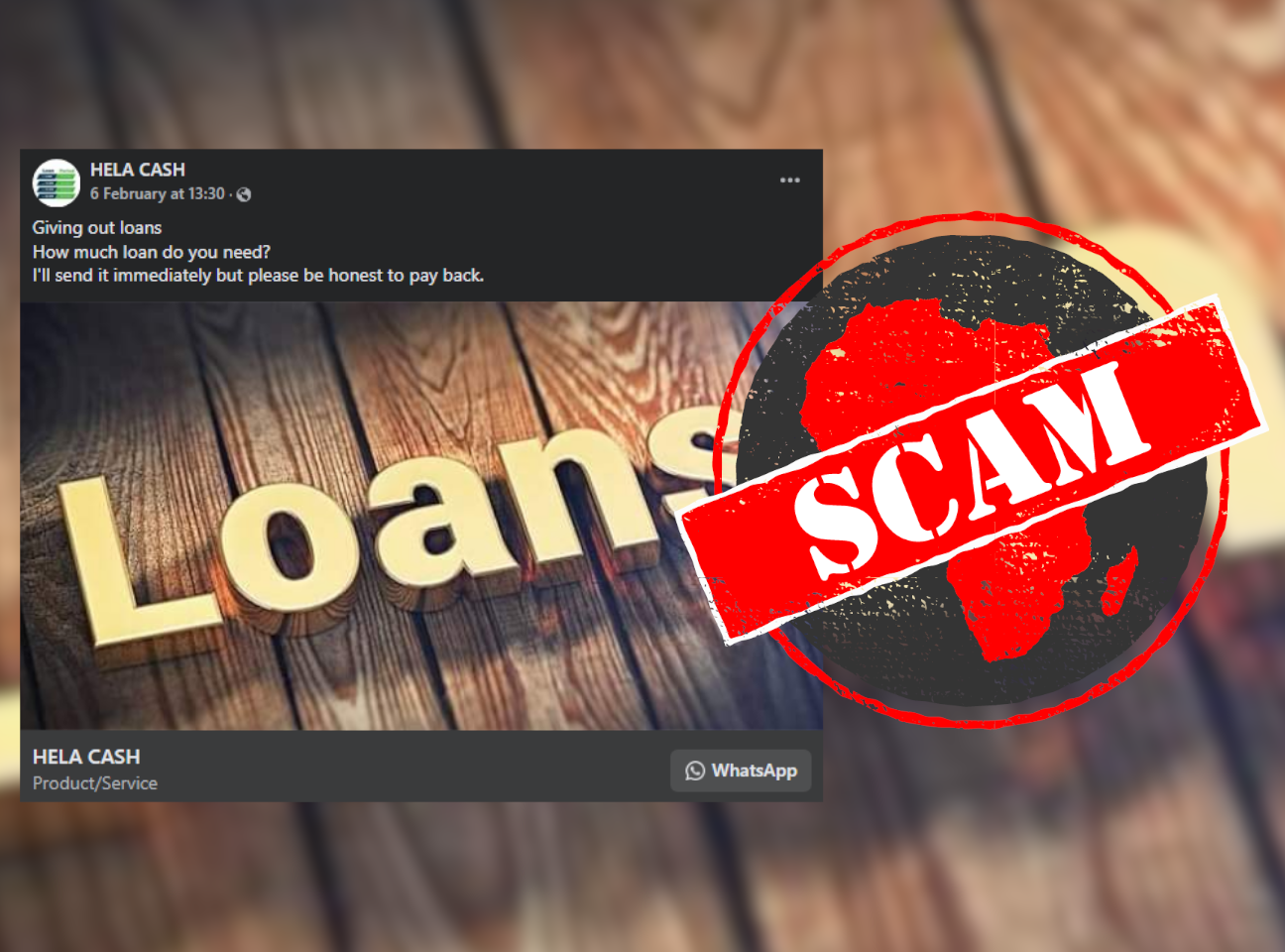IN SHORT: Scammers are increasingly relying on ads offering fake loans to try to scam the unsuspecting public. This Facebook page uses the same tactics.
“Giving out loans How much loan do you need? I'll send it immediately but please be honest to pay back,” reads a post by the Facebook page HELA CASH.
It is among dozens of almost identical posts published on different dates by the page, promising Kenyan users instant loans of different amounts.
They all ask users to make their application directly over WhatsApp or through Facebook Messenger.
But are the loan offers legit? We checked.

Fake loan offers
The page’s supposed business is not branded. It is missing crucial elements, such as a logo and colours, that usually identify a legit business. Its ads contain grammatical errors and use the same photos over and over. This is a red flag.
The page also doesn’t link to any website. This is another red flag since legitimate financial service providers usually have websites or apps where customers can get more information about their services and make transactions.
When we contacted the page asking for a loan, we were told that the amount we asked for attracts a KSh150 fee to be paid before accessing the loan.
This is a common trick used by scammers. They offer nonexistent loans and when users express interest, they ask them to pay “registration”, “unlocking” or “activation” fees. They then take the money from the user but don’t issue any loan. Reputable lenders rarely ask you to pay money before they give you a loan.
All signs point to the loan offers being fake and that the page should be ignored.
Republish our content for free
For publishers: what to do if your post is rated false
A fact-checker has rated your Facebook or Instagram post as “false”, “altered”, “partly false” or “missing context”. This could have serious consequences. What do you do?
Click on our guide for the steps you should follow.
Publishers guideAfrica Check teams up with Facebook
Africa Check is a partner in Meta's third-party fact-checking programme to help stop the spread of false information on social media.
The content we rate as “false” will be downgraded on Facebook and Instagram. This means fewer people will see it.
You can also help identify false information on Facebook. This guide explains how.




Add new comment